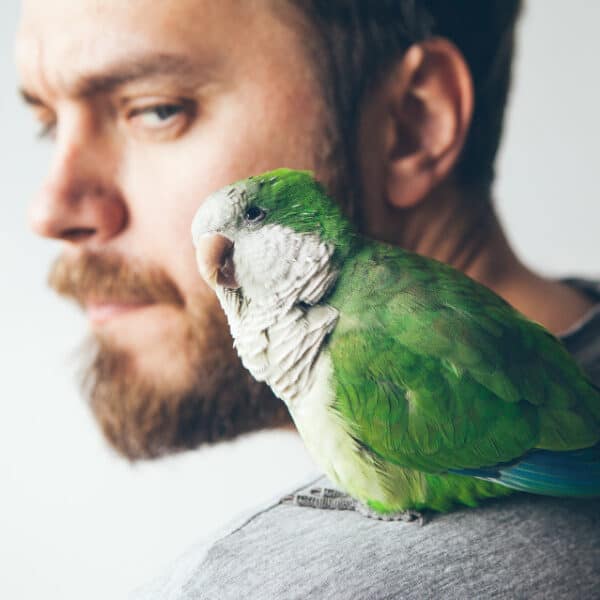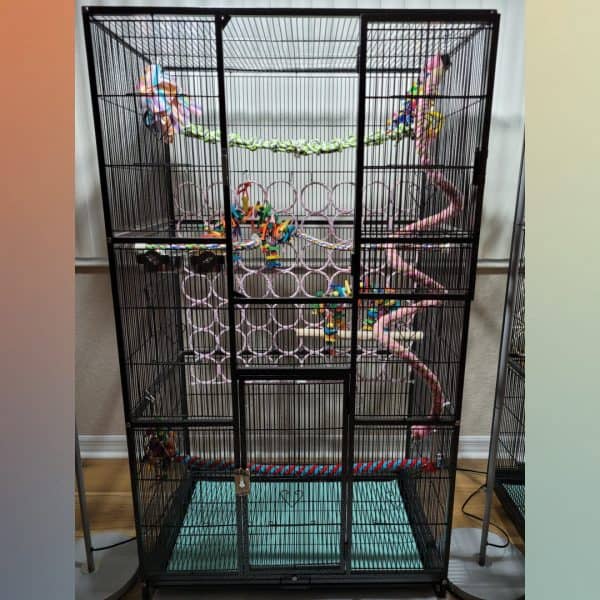
The Pet Bird Keepers Myths – Myth
Last Updated on by Mitch Rezman
Imagine a world where you spend every day looking at, reading about, or having conversations with other pet bird keepers. File this under “be careful what you wish for.” That said I will tell anyone upfront, I’m not an expert on caged bird keeping. I don’t have a degree – in anything. I haven’t written a book – yet.
My expressed opinions about caged bird keeping come from interactions and providing solutions to hundreds of thousands of caged bird keepers over the past dozen years (and Catherine’s 21 years) It’s a simple formula. We sell you the supplies necessary to create acceptable (as can be) environments for caged bird keeping, and you tell us why stuff works and why it doesn’t. It’s made our pet bird-keeping knowledge base quite robust. From our learning center to the content in almost every category and the 2000 pages on this website that share with you what we’ve learned like
When I read content on the internet (so it must be true:-) the “Alpha male macaw” is a myth. ‘Your bird’s hormonal issues can easily be fixed and aren’t really a problem”. “Your bird needs to be obedient”. UVA and UVB will aid in the production of vitamin D in your bird” The list is endless. My response to this is BLACKFISH!
From CNN.com: Blackfish (the movie) traces a 39-year history of killer whales in captivity leading up to the 2010 killing of Sea World trainer Dawn Brancheau by the 12,000-pound orca, Tilikum, a whale previously associated with the death of two other people. Blackfish chillingly shows that this incident of violence is hardly an isolated one, along the way exploring the extraordinary nature of orcas, thought to be one of the most intelligent species in the animal kingdom.
To this point we’re finding captive…any species with high intelligence from killer whales to caged parrots, “captivity” literally changes the nature of the beast. Why anyone was so surprised when an animal called a “killer” whale killed someone is truly macabre comedy. So before I go too far off the field, my point is “captivity of wild animals” is a not-so-nice way of saying “pet bird keeping” and can change the animal in unpredictable ways.
So I ask the bird behaviorists and avian veterinarians if these “myths” are to be countermanded with absolute truths, when does the self-mutilation (feather plucking) issue get resolved? Why can’t we just declare it an errant behavior and end it? If, “Your bird’s hormonal issues can easily be fixed” why not screaming or toe-tapping?
Why haven’t we developed the perfect bird food? “Feed your parrot this Mrs. Williams and your bird will live to be 100, guaranteed.” Why can’t we say something like that with certainty? The answer is simple – Blackfish.
As the head of the Santa Barbara bird rescue responded (in the documentary Parrot Confidential – the name eludes me) to the question how big a cage does my bird need? “35 square miles” was his response. Your bird instinctively expects a 35-square-mile environment but gets 200 square feet if it’s lucky.
So what happens? Therein lies the rub. How your bird is going to react to anything in your home is anyone’s guess. Its instinctive expectation of having a bird will help my home feel like a Walt Disney movie against the reality of 23-hour days in a 6-square-foot wrought iron jail that makes it impossible to predict the actions of any species once their freedom is severely restricted.
We’ve seen plucking triggered by the placement of new artwork in the same room as a Moluccan Cockatoo who obsessed with the “intrusion” with no human awareness of their parrot’s phobic reaction, for days – until the plucking started “for no reason”. That took some detective work but the new painting was THE trigger and when the painting was removed from the room, the bird’s demeanor changed entirely for the better. You won’t read about that in a doctoral thesis on psittacine behavior.
And yes I do think your bird, your dog, and your horse should obey you explicitly. It’s much to their advantage. Obedience helps avoid flying into walls or mirrors or (dogs) running in front of moving automobiles. If you’ve ever seen a dressage horse demonstration, you’ll be moved beyond words when you realize horses can do a lot more than “giddy up.”
Tying all these thoughts together, let’s at least agree that regardless of the author’s resume or the letters after a veterinarian’s name, it’s impossible to predict with certainty, the behavior of any animal removed from its natural environment. Take nothing that you read, see or hear about caged bird keeping as absolute truth – even from me, as there aren’t any.
Written by Mitch Rezman
CMO Windy City Parrot, Inc.
Approved by Catherine Tobsing
President Windy City Parrot, Inc
Your Zygodactyl Footnote
Darwin didn’t know a lot about evolution until he went exploring
Author Profile
Latest entries
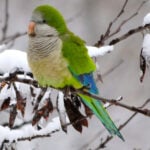 The Traveling BirdJune 26, 2025Can You Name 5 Parrot Species That Are Living Wild in the USA?
The Traveling BirdJune 26, 2025Can You Name 5 Parrot Species That Are Living Wild in the USA?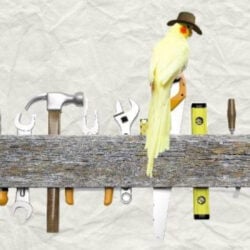 Bird BehaviorJune 26, 2025How is it Parrots Are Problem Solvers Social Animals and Even Use Tools?
Bird BehaviorJune 26, 2025How is it Parrots Are Problem Solvers Social Animals and Even Use Tools?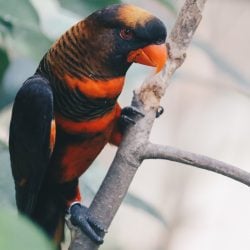 Bird & Parrot AnatomyJune 25, 2025How a Tiny Chemical Modification Makes Parrots Nature’s Living Paintings
Bird & Parrot AnatomyJune 25, 2025How a Tiny Chemical Modification Makes Parrots Nature’s Living Paintings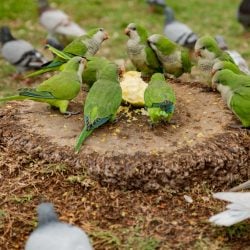 PigeonsJune 20, 2025How Do Parrots Thrive in Cities Outside Their Native Habitats?
PigeonsJune 20, 2025How Do Parrots Thrive in Cities Outside Their Native Habitats?

